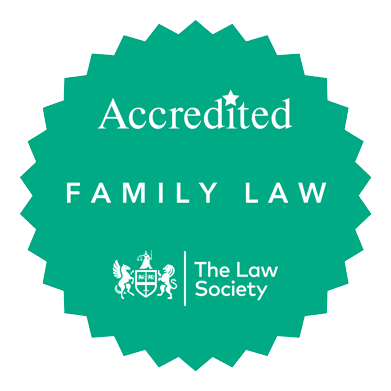Cohabitation Disputes
Legal Guidance for Unmarried Couples
While more couples are choosing to live together without getting married, the legal protections for cohabiting partners remain limited in the UK. When these relationships break down, disagreements around finances, property, and children can become complex and emotionally charged.
At Waely Law, our experienced family law solicitors provide expert guidance on cohabitation disputes, helping you navigate separation with clarity, fairness, and confidence.
What Are Cohabitation Disputes?
Cohabitation disputes arise when unmarried couples separate and disagree about:
Who owns or stays in the family home
Division of jointly held assets or debts
Financial contributions to rent, mortgage, or renovations
What happens to shared possessions
Parental rights and childcare arrangements
Because there’s no concept of common law marriage under UK law, cohabiting partners cannot rely on divorce legislation to resolve these matters.
Legal Framework for Cohabiting Couples
In the absence of a formal agreement like a cohabitation contract, legal disputes between former partners are often resolved under trusts and property law:
-
TOLATA (Trusts of Land and Appointment of Trustees Act 1996)
Allows one party to ask the court to determine ownership of a property or order its sale.
-
Constructive Trusts
Recognise a beneficial interest when someone has contributed financially but isn’t on the deeds.
-
Proprietary Estoppel
Applies when one person is led to believe they have an interest in a property and suffers detriment as a result.
We can advise on the best legal route for your situation, whether through negotiation, mediation or formal litigation.
Common Types of Cohabitation Disputes
Ownership of the family home (sole name vs joint name)
Repayment of loans or financial contributions
Claims to jointly acquired assets or furniture
Care and financial support for children
Moving out and who gets to remain in the property
These issues can be especially stressful where relationships have broken down irreparably or one party is financially vulnerable.
Preventing Disputes with a Cohabitation Agreement
The best way to avoid a dispute is to prepare for the future with a Cohabitation Agreement. This legal document outlines:
Who owns what
Who pays for bills or mortgage
What happens to assets if the relationship ends
Arrangements for children and shared pets
Our team can help you put a robust agreement in place to avoid legal uncertainty later.
Why Choose Waely Law?
✔ Expert Family Law Solicitors – Specialising exclusively in family law.
✔ Client-Focused Approach – Tailored advice to suit your unique situation.
✔ Transparent Pricing – Fixed-fee options available for peace of mind.
✔ Strong Court Representation – Protecting your rights and interests throughout the process.
Frequently Asked Questions (FAQs)
You don’t have automatic legal rights like married couples do. If you’re not named on the property or joint accounts, you may need to claim under TOLATA to assert an interest in a property or assets.
TOLATA allows you to ask a court to determine whether you have a financial interest in a property, even if you’re not on the title deeds. It can also order a sale or regulate who lives in the home.
Not for yourself. There’s no right to spousal maintenance if you weren’t married. However, you may be able to claim child maintenance or support for children’s housing needs under Schedule 1 of the Children Act 1989.
You may be able to claim a beneficial interest under a constructive trust. Courts will look at whether there was a shared intention and whether you acted to your detriment based on that intention.
Possibly, depending on your contributions or if you have children. You might apply for an Occupation Order or make a claim under Schedule 1 for housing provision.
How We Work With You
At Waely Law, we make the legal process clear, efficient, and stress-free. Here’s what you can expect when you reach out to us:
Get in Touch
Contact us in the way that suits you best:
Call us on 020 3892 1787
Email us at info@waelylaw.com
Fill out our contact form below, and we’ll get back to you promptly.
We understand that taking the first step in a legal matter can be daunting, so rest assured that our team is here to listen and guide you forward.
Initial Consultation
One of our specialists will arrange a no-obligation call to discuss your situation.
This allows us to assess how we can help and provide initial guidance. If your case falls within our expertise, we’ll move forward to the next step.
Strategy Meeting with a Solicitor
You’ll meet with an experienced family law solicitor for a comprehensive strategy session. During this meeting, we will:
✔ Go through your case in detail
✔ Explain your legal options
✔ Outline a tailored strategy
From the moment you engage with Waely Law, you can trust that you are in experienced hands, with a legal team dedicated to protecting your rights and securing your future.
Take the First Step with Confidence
External Links for Further Guidance
Citizens Advice: Living together and marriage – legal differences – Overview of legal differences between married and unmarried couples.
Articles & Insights
Stay informed with expert family law insights from Waely Law Solicitors in London. Read about divorce, child arrangements, and financial settlements.
Articles and Insights into Family Law












